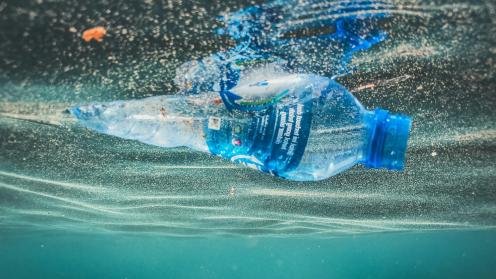Chemicals & Wastes
When used improperly or disposed of unsafely, chemicals pose significant risks for both the environment and human health. Toxic chemicals are found in all ecosystems on Earth, including Antarctica and the most remote seas, affecting biodiversity, agricultural production, water quality, and human health. Over 100 million man-made chemicals and chemical formulations are used in every sector of the industrial economy. Many chemicals, such as persistent organic pollutants (POPs) and mercury, travel over large distances through air, water currents, and in migratory species. Some POPs can remain in the human body for more than 50 years. Mercury, an element, is infinitely persistent. While chemicals and waste are major contributors to world economies, their sound management is essential to avoiding risks to human health and ecosystems and substantial costs to national economies.
